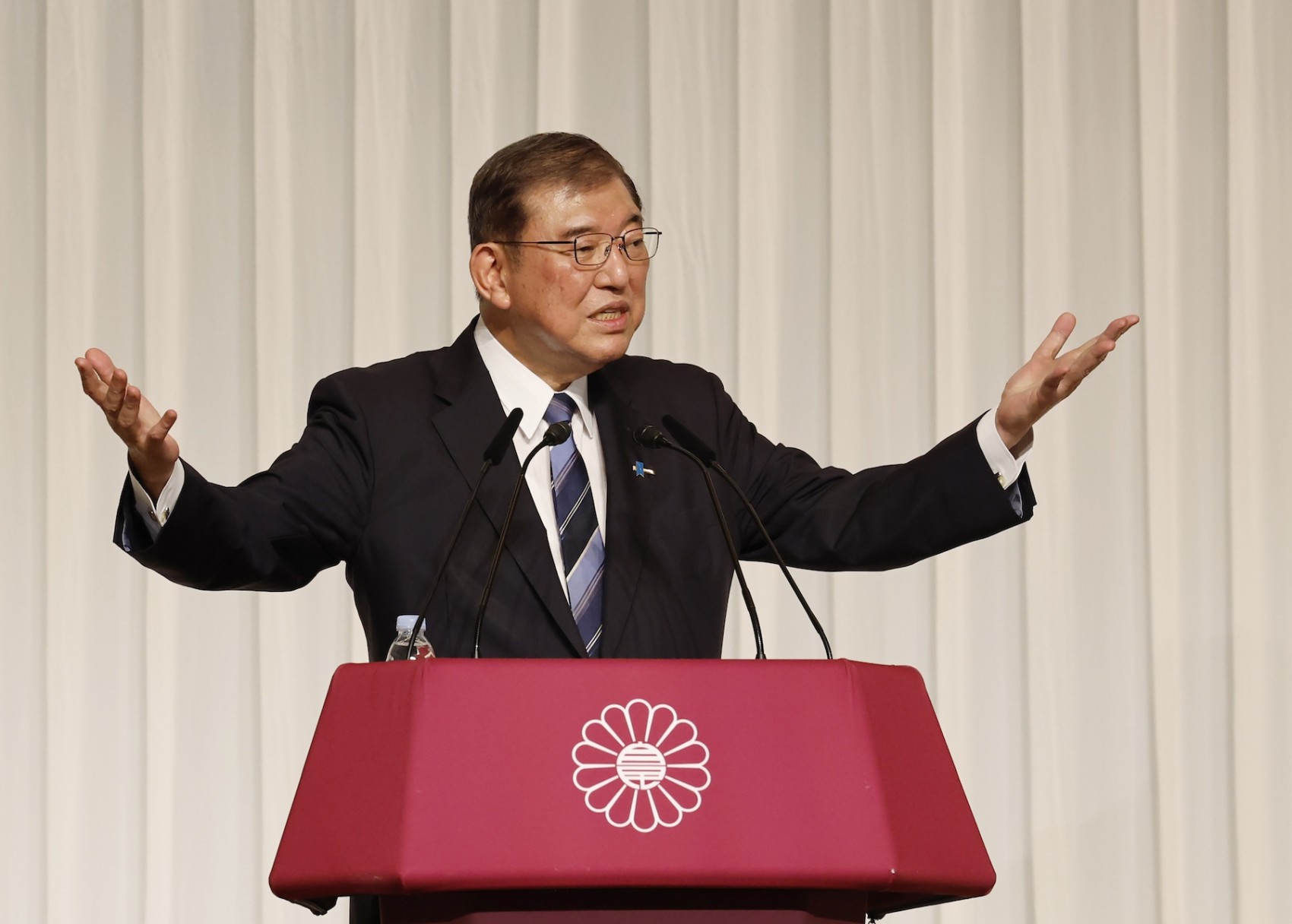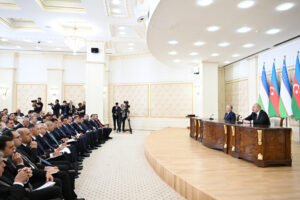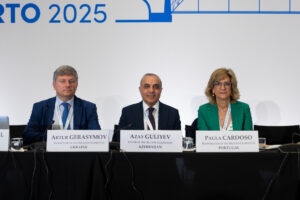Tokyo, 29 September, /AJMEDIA/
Japan’s new ruling party chief Shigeru Ishiba may see an initial bump in public support following Friday’s presidential election victory, but he does not have the luxury of basking in the glow with a party revamp at stake after a slush fund scandal.
A moment of truth awaits the 67-year-old leader, with two pressing issues: when to call a general election to seek a public mandate and whether he can stitch together a party that was split over a record nine candidates in the leadership election — a necessary step for the new chief to remain in power.
The prevailing view in political circles is that the new chief of the Liberal Democratic Party, who is set to be formally elected prime minister on Tuesday, may dissolve the powerful House of Representatives for an election to be held on Oct 27 or Nov 10.
The reinstatement of Yoshihiko Noda, an eloquent former prime minister as head of Japan’s main opposition party, is threatening to cut into LDP support among moderate conservatives, due to his anticipated push to shift the left-leaning Constitutional Democratic Party of Japan toward the center, political experts said.
The new premier “will be tempted to call an election while the opposition bloc is fractured and unprepared. The LDP can give the impression of renewal with a fresh public face. The sooner, the better is the natural line of thinking,” said Masahiro Iwasaki, a professor at Nihon University.
“There is a question mark, however, as to whether the new LDP chief can ensure stability and maintain power, as divisions within the party are likely to remain deep,” the political science expert added.
In the coming days, the new leader will finalize his key cabinet and party executive posts, which will determine the fortunes of the new administration.
“Never have I experienced a presidential race like this in my 38-year career as a politician,” Ishiba said after his victory.
He acknowledged that the lack of faction-based support left it up to each lawmaker to decide who to vote for, a factor that political observers say split the vote and made the outcome of the race unpredictable.
“Unless we unite, we won’t be able to win elections,” Ishiba said, after he beat his rival Sanae Takaichi, a 63-year-old conservative who serves as economic security minister in a close runoff vote. Ishiba secured 215 votes to Takaichi’s 194.
Shinjiro Koizumi, whose father Junichiro Koizumi enjoyed high public support as a reformist premier from 2001 to 2006, had framed the presidential race as an opportunity to choose a leader “who can deliver,” but lost his bid.
The nine candidates running for the LDP chief was not the only striking difference from previous elections. None of the top three contenders — Ishiba, Takaichi and Koizumi — seem to have a knack for intraparty politicking.
Kishida, who was elected LDP chief and prime minister in 2021, called a general election soon after taking office. The LDP, along with its junior coalition partner, the Komeito party, secured a comfortable majority in the Oct 31 lower house election that year.
But Kishida’s grip on power gradually weakened, as his ties with LDP kingmakers who had enabled a stable government — Taro Aso, a former prime minister who leads the only remaining faction, and Toshimitsu Motegi, the No. 2 of the LDP — apparently cooled toward the final days of his tenure.
Despite the disbandment of the powerful factions, their influence lingered. Both Ishiba and Koizumi, who were not members of such groups, sought support from Aso and Yoshihide Suga, another former premier who still wields influence within the ruling party.
Kishida did not publicly endorse anyone in the run-up to the LDP election, but he was quoted as telling people around him that “no one stands out.”
Yu Uchiyama, a political science professor at the University of Tokyo, said the longevity of the new administration hinges on how drastic the next leader’s reforms will be, after revelations that powerful LDP factions had amassed unreported slush funds, eroding voter trust.
“I don’t see it as a likely scenario that the LDP will lose its majority” if a lower house election is held, he said, adding, “But such a case cannot be ruled out completely, now that Mr. Noda has become CDPJ chief.”
In the minds of ordinary people who have only recently begun to see wage growth outpacing inflation, the priority is how the new prime minister will shore up the flagging economy.
Security concerns have also grown in recent weeks after China test-fired an intercontinental ballistic missile into the Pacific and Russia repeatedly breached Japanese airspace while the LDP’s campaign was under way.
In a Kyodo News poll conducted before the presidential election, the LDP enjoyed the highest support among political parties, at about 37 percent, compared with around 12 percent for the CDPJ.
While the current term for lower house members expires in October 2025, another election to replace half of the upper house members must be held next summer.
Outgoing leader Kishida is stepping down to give the LDP a new public face, and the candidates sounded the alarm about the magnitude of the crisis facing the party during their 15-day campaign. Some LDP lawmakers stressed the need for a “stability” leader.
“If you look at the drastic change that the LDP experienced under Junichiro Koizumi, change can come from within. What matters is whether the leader has what it takes — be it beliefs, philosophy and skills — to trigger it,” Uchiyama said.









































